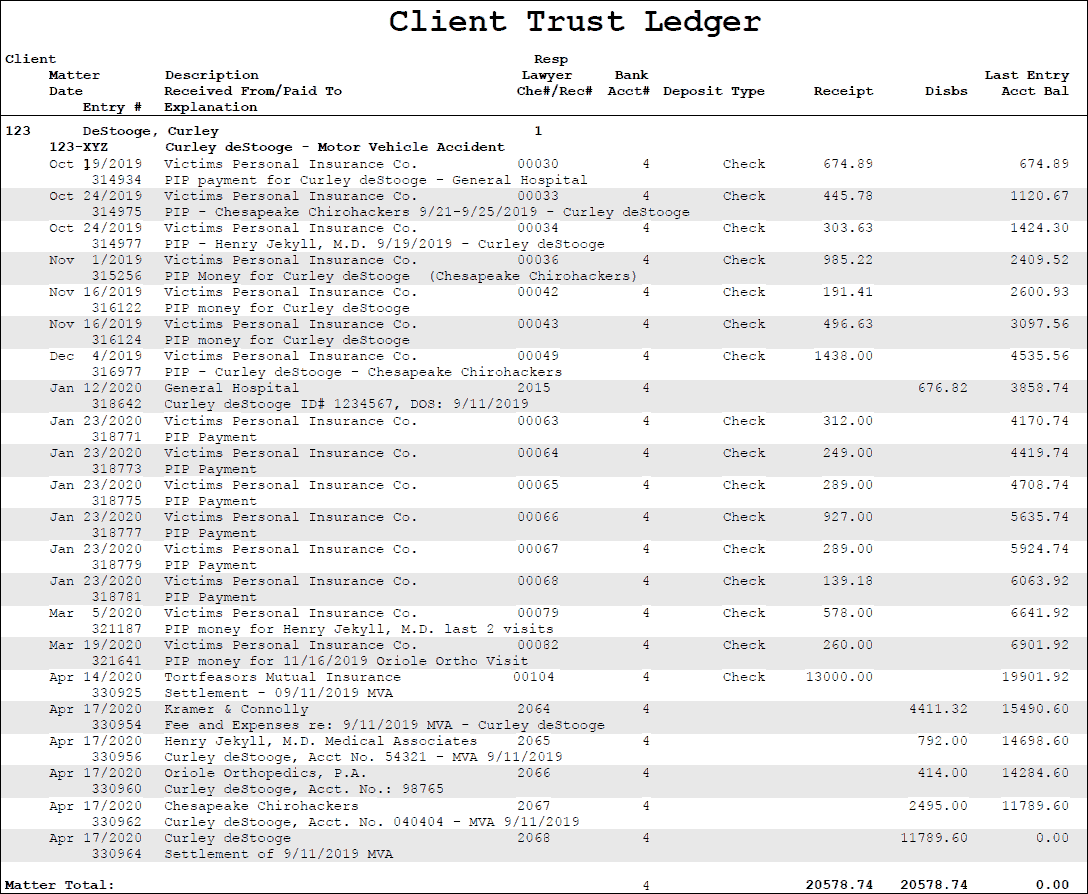
You can hold all of your various clients' funds in a single IOLTA account. But you won't know what belongs to whom unless you separately account for each client and case.
A subset of the information listed on the overall trust account ledger, the client trust ledger provides a snapshot of all trust activity for a given client in a given case. This ledger must show the date of the deposit or disbursement, the amount of each, and the purpose for which the funds are to be used. For disbursements, the ledger must identify the payee and check or transfer number and show the balance of funds remaining in the account in connection with the matter.
Without allocating specific funds to specific clients, how would you know that Carlos Clienté has spent $6,543.21 of his $10,000.00 retainer? How would you know that Tortfeasors Mutual's $13,000 check represents the gross recovery in Curley deStooge's case, or how PIP payments from his own insurer were allocated to medical providers? The example below comes from an extremely simple auto accident case. But without a record of all trust activity, you would quickly lose track of even the simplest case.
Don’t think you can rely on memory to keep this straight. As the number of clients and cases grow, you’ll quickly lose control of your account and won’t know which funds pertain to which cases. You may not intend to “steal” from your clients, but careless accounting may lead to misappropriation and harm them just as much.
